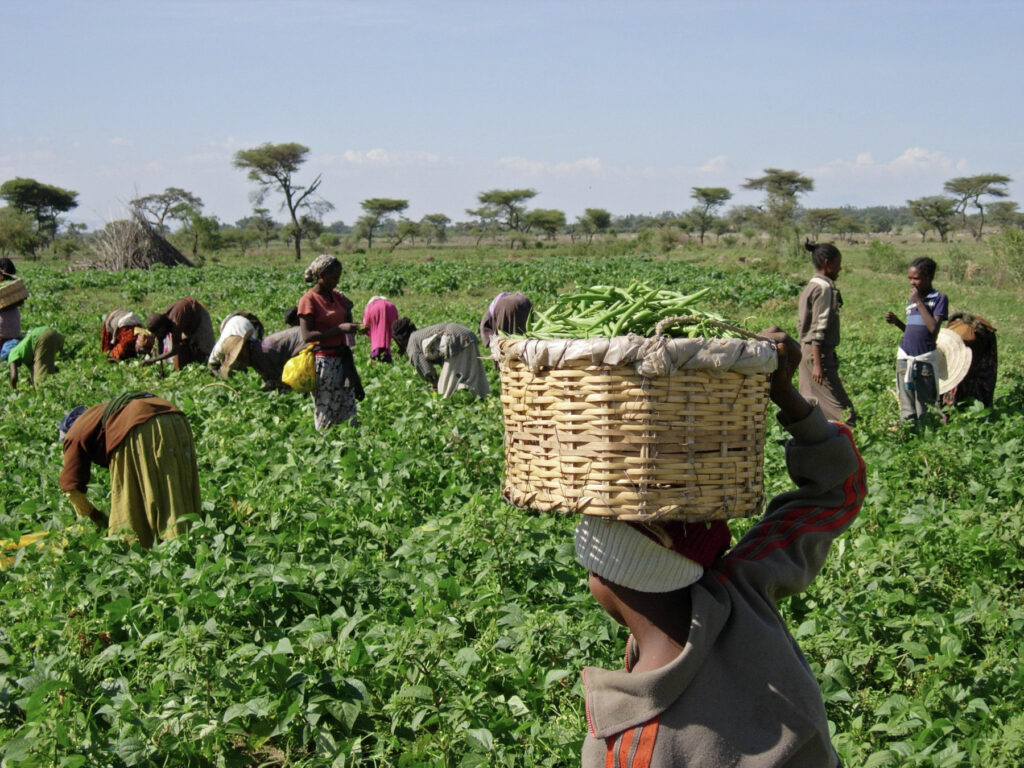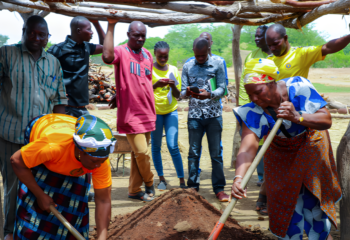
The Transform Soil Fertility Management in Ethiopia (TRANSFORM) program, designed to enhance soil health and fertility management through inclusive and participatory approaches, was launched at the regional level through a series of events following the program’s official launch on April 3 in Addis Ababa, Ethiopia.
The launch began in Adama, Oromia Region, on April 15, followed by Kombolcha, Amhara Region, and Halaba Town, Central Ethiopia Regional State (CERS), both on April 24.
Event organizers employed targeted communication tools and structured briefings to share key messages around TRANSFORM’s objectives, core components, and implementation strategy, ensuring a clear understanding of the program’s goals and approach.
With continued collaboration, the program will play a vital role in advancing soil health and agricultural transformation in Ethiopia for the benefit of farmers, communities, and the nation.
These regional launch events marked a critical first step in rolling out the program across 12 districts in Amhara, Oromia, and CERS. By engaging stakeholders early and fostering a sense of shared responsibility, TRANSFORM laid a strong foundation for locally driven action from the outset.
For example, to help reach TRANSFORM’s goal of enhancing the sustainable use of 65,000 hectares of farmland, activities at the events supported the adoption of context-specific integrated soil fertility management (ISFM) practices, which also align with national soil health and sustainable agriculture objectives.
As multi-stakeholder platforms, these activities also increased TRANSFORM’s visibility, reinforced collaboration, and advanced policy advocacy across all governance tiers. Actively engaged participants included private sector actors, government officials, input suppliers, development partners, and sector experts.
Deliberations among these parties drew attention especially to the program’s Participatory Integrated Planning (PIP) approach, emphasizing soil health restoration, nutrient cycling, and specific fertilizer recommendations tailored to agroecological conditions and smallholder needs. Proceedings such as these supported the program’s goal to sustainably increase the productivity of 100,000 small-scale food producers.

His Excellency Usman Surur, Head of the Bureau of Agriculture in CERS, declared that the TRANSFORM program is a timely science-based response to soil fertility and productivity challenges.
He noted its ISFM approach restores soil health through sustainable, context-specific practices, while its farmer-led, community-driven model promotes inclusive, locally tailored solutions that support climate-resilient agricultural systems.
Following these high-level launch events, additional promotional awareness missions were carried out in Oromia, Amhara, and CERS to raise awareness and mobilize stakeholders around the PIP approach and ISFM practices.
These launch events earned participants’ endorsement of the program and affirmations of their commitment, creating a strong foundation for the effective rollout of the TRANSFORM program across Ethiopia.
By uniting stakeholders around a shared vision for evidence-based, participatory, context-specific soil management, TRANSFORM has positioned itself to deliver practical solutions that restore soil health, boost productivity, and build resilient, sustainable farming systems.
With continued collaboration, the program will play a vital role in advancing soil health and agricultural transformation in Ethiopia for the benefit of farmers, communities, and the nation.
The TRANSFORM project (2025-2028) is funded by the Embassy of the Kingdom of the Netherlands and the European Union and is implemented by a consortium comprising the International Fertilizer Development Center (IFDC), Wageningen University & Research/Wageningen Environmental Research, ISRIC – World Soil Information, Environment and Coffee Forest Forum (ECFF), and SOS Sahel Ethiopia.




